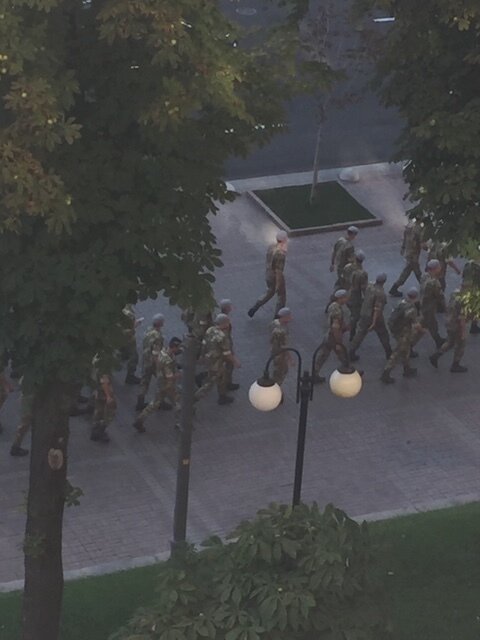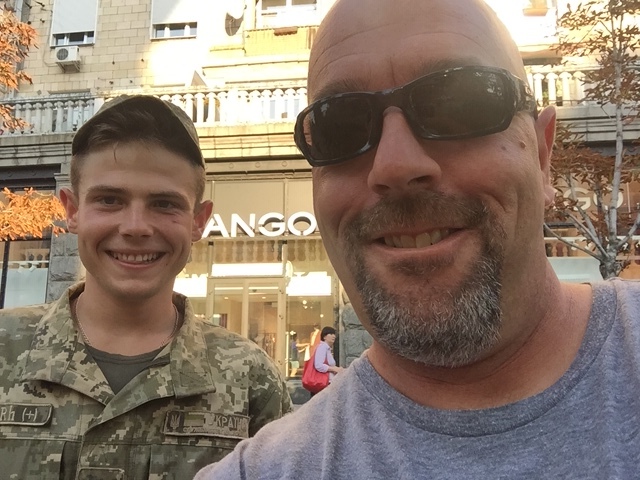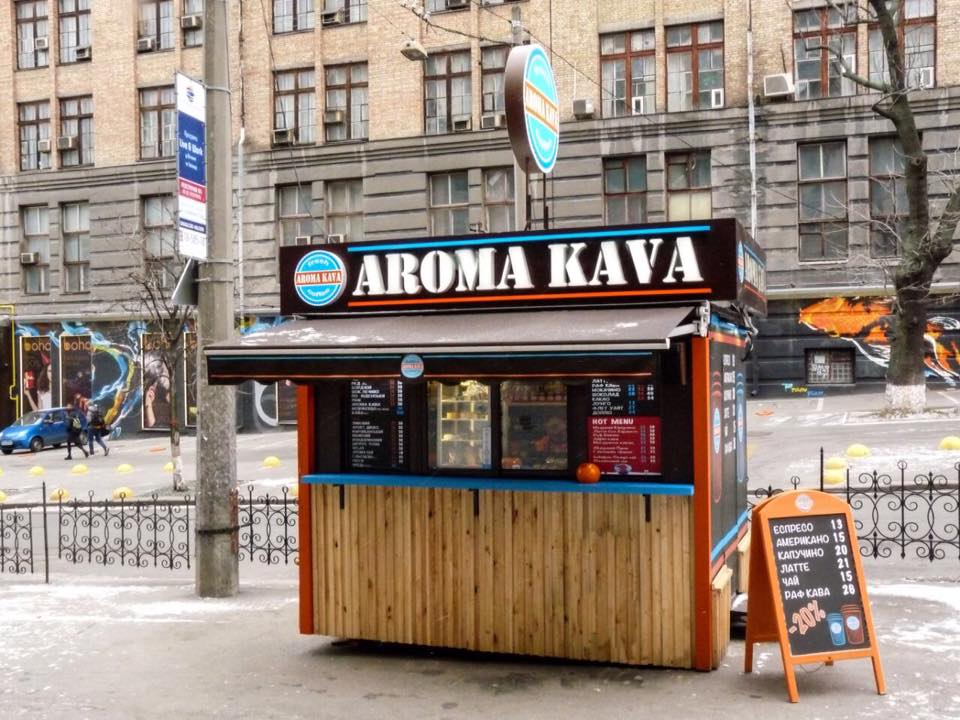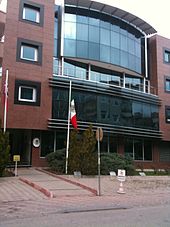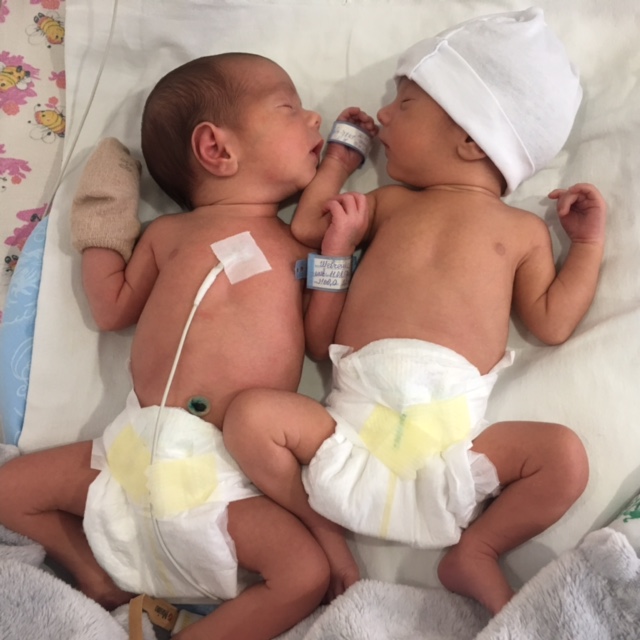All of the circumstances that had to ultimately fall the right way for us to return home to the United States with two healthy sons forms a chain that’s pretty long. You can find a lot of those stories regarding “chain links” recounted here, but given how many exist it’s easy at times to overlook one here and there. I was reminded of such a link during a recent sleepless night when I was watching something on television about Frankfurt, Germany. It brought me back to our actual trip home from Ukraine, which included a stop in Frankfurt that was short but definitely eventful.
We didn’t even leave the airport, but that was enough on its own for a memorable experience. First, folks should understand that the airport there is not one that people enjoy using. This article is one of many you’ll find talking about how Frankfurt is basically the O’Hare of Germany. We had no idea flying in, as we had been to other airports in Germany over the years and found them to be extremely efficient, even with tighter levels of security than we were used to seeing in the United States.
We had about 90 minutes between landing in Frankfurt from Kyiv and our flight from Frankfurt to LAX. Keep in mind that because of everything that had happened with Mickey’s fight for his life and the governmental red tape we had to cut through, we had to change our return flights at least four times. This was the only flight anywhere near home we were able to find for that day, and we needed to get there for a lot of reasons.
As we landed, we realized that we were a long way from the terminal, which wasn’t even the terminal we needed to catch our flight. As I did some mental timing math, that euphoric feeling I had about being on our way home began to disappear. This was going to be tight, as we had to clear security and most likely go a long way to our ultimate gate. That excited feeling was replaced by anxiety when we waited for at least 15 minutes for a shuttle bus to pick us up.
The yellow shuttle buses. H/T: Frankfurt Airport
My emotions began to progress towards panic when we finally got on the bus and then off, only to realize that the security line inside the airport was obscenely long. There had to have been at least 100 people in front of us. I timed the first few minutes and came to a troubling realization: There was no way we were going to make our connecting flight.
The LAST thing we needed, after ALL the hurdles we had cleared, was one more obstacle that kept us in Germany for at least a day if not longer. That would’ve meant me stumbling around another completely unfamiliar city looking for formula, us figuring out how to build a safe bed for two newborn babies to sleep in and a whole lot of other things to deal with, including figuring out how to even get to a hotel in a cab with all of us, as our car seats were not with us. Have I mentioned that we were traveling with two newborns? Two extremely colicky newborns?
All of us understand that helpless feeling that arrives when you’re standing in a line with no chance of seeing the end of it in time. It was an angry line, too, as people in front of us who had come to similar realizations were starting to openly jockey for position and argue with each other. It was really stressful.
I saw a seemingly disinterested security guard standing not too far away, and decided to go for broke. I made eye contact with her, which wasn’t hard since our screaming babies were garnering a lot of attention, even with the borderline chaos all around us. I started waving our boarding passes back and forth over my head and beckoned her to come towards us with my other hand. She looked in both directions, took a few steps towards me and then motioned for me to come to her.
Obviously there was no time to take photos during this craziness, so thanks to the CBC for a pretty good depiction of who helped us.
I hoped I wasn’t about to be detained, but I stepped over the barricade and met her. I said, “English?” and she said, “Some.” Hoo-boy! We can at least communicate a bit. I asked her to come with me, which she did, introduced her to my wife and showed her our babies. I gave her our boarding passes and passports and she realized our predicament. She motioned for me to wait there, outside the line and walked away. It was only then when I noticed the enormous gun on her shoulder.
She came back in a minute with some guy, and both of them motioned for all of us to come with them. We did so, and they walked us directly to the front of the entire line, which angered a lot of people who had been waiting. I mean, they were REALLY angry and shouting at us and them.
We made our way through security, which was no small chore with all the people and stuff we had with us, and my wife and I hugged each other on the other side. I waved a huge “THANK YOU” to the lady who had helped us. She nodded in acknowledgement and walked off.
At that moment, I realized that we were still not out of the woods. We figured out where our departing gate was, and we also realized in that moment that we had 30 minutes to take-off. We had 10 minutes to get to our gate before they closed the doors. I told Tiffany to just get there, and I put the boys back in their double-decker stroller and started running. Not jogging or trotting, but RUNNING. I was barking like a dog all the way through the terminal, waving people out of the way with one hand and holding onto the stroller with the other. Several people literally dove out of my way during this run that took 9.9 minutes.
Link credit. This isn’t all that accurate. This was yet another situation where my lovely wife could not hang with my blinding speed.
That’s right – they were walking towards the gate door to close it when I got there. I shouted, “WAIT!” and they thankfully did. They somehow knew we were on our way and who we were, as the gate agent said my name as I approached. Tiffany came running up behind me, and I wondered what took her so long since I was running with huge bags on my back and two babies.
They told us that security had let them know that we were coming, so they were willing to let us on but that they couldn’t wait any longer. We had to board. We staggered onto the plane, me sweating profusely and beyond confused, Tiffany happy and the boys wide awake. We had saved for first class seats, and as soon as this very trendy young couple saw us arrive last-minute, they moved to the next section. I chuckled, told myself that wouldn’t be the last time we sent people scurrying away from us and we got ourselves settled.
This was it – we were actually on our way home. It was an adventure all the way to the end, and this wonderful person – this complete stranger whose name I will never know – was the one who helped us get past that final obstacle. The next time we stepped onto land, it would be in California. My euphoria returned. You never know who’s going to make a huge difference for you. Just another thing we learned during this entire experience.




